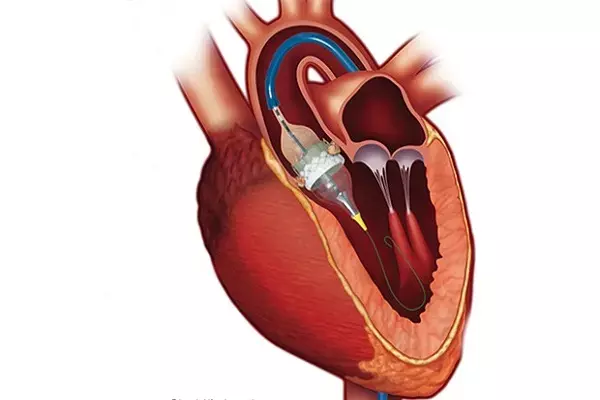- Home
- Medical news & Guidelines
- Anesthesiology
- Cardiology and CTVS
- Critical Care
- Dentistry
- Dermatology
- Diabetes and Endocrinology
- ENT
- Gastroenterology
- Medicine
- Nephrology
- Neurology
- Obstretics-Gynaecology
- Oncology
- Ophthalmology
- Orthopaedics
- Pediatrics-Neonatology
- Psychiatry
- Pulmonology
- Radiology
- Surgery
- Urology
- Laboratory Medicine
- Diet
- Nursing
- Paramedical
- Physiotherapy
- Health news
- Fact Check
- Bone Health Fact Check
- Brain Health Fact Check
- Cancer Related Fact Check
- Child Care Fact Check
- Dental and oral health fact check
- Diabetes and metabolic health fact check
- Diet and Nutrition Fact Check
- Eye and ENT Care Fact Check
- Fitness fact check
- Gut health fact check
- Heart health fact check
- Kidney health fact check
- Medical education fact check
- Men's health fact check
- Respiratory fact check
- Skin and hair care fact check
- Vaccine and Immunization fact check
- Women's health fact check
- AYUSH
- State News
- Andaman and Nicobar Islands
- Andhra Pradesh
- Arunachal Pradesh
- Assam
- Bihar
- Chandigarh
- Chattisgarh
- Dadra and Nagar Haveli
- Daman and Diu
- Delhi
- Goa
- Gujarat
- Haryana
- Himachal Pradesh
- Jammu & Kashmir
- Jharkhand
- Karnataka
- Kerala
- Ladakh
- Lakshadweep
- Madhya Pradesh
- Maharashtra
- Manipur
- Meghalaya
- Mizoram
- Nagaland
- Odisha
- Puducherry
- Punjab
- Rajasthan
- Sikkim
- Tamil Nadu
- Telangana
- Tripura
- Uttar Pradesh
- Uttrakhand
- West Bengal
- Medical Education
- Industry
BASILICA safe and successful procedure with low rate of coronary obstruction: Study

USA: BASILICA is a safe procedure with low risk of stroke and death, according to a recent study in the journal JACC: Cardiovascular interventions. The procedure has a high success rate and low rate of coronary artery obstruction.
Transcatheter aortic valve replacement (TAVR) is a minimally invasive procedure that causes coronary artery obstruction in 0.7% of cases with 40% to 50% mortality. BASILICA (bioprosthetic or native aortic scallop intentional laceration to prevent iatrogenic coronary artery obstruction) is a procedure for the prevention of coronary obstruction. However, there is a lack of data on safety and feasibility of this procedure in a large patient cohort.
Against the above background, Jaffar M. Khan, Emory University Hospital, Atlanta, Georgia, USA, and colleagues aimed to determine the safety of the BASILICA procedure.
The international BASILICA registry was a retrospective, multicenter, real-world registry of patients at risk of coronary artery obstruction undergoing BASILICA and transcatheter aortic valve replacement. Valve Academic Research Consortium-2 definitions were used to adjudicate events.
214 patients were included from 25 centers in North America and Europe between June 2017 and December 2020; 72.8% had bioprosthetic aortic valves and 78.5% underwent solo BASILICA.
Key findings of the study include:
- Leaflet traversal was successful in 94.9% and leaflet laceration in 94.4%.
- Partial or complete coronary artery obstruction was seen in 4.7%.
- Procedure success, defined as successful BASILICA traversal and laceration without mortality, coronary obstruction, or emergency intervention, was achieved in 86.9%.
- Thirty-day mortality was 2.8% and stroke was 2.8%, with 0.5% disabling stroke.
- Thirty-day death and disabling stroke were seen in 3.4%.
- Valve Academic Research Consortium-2 composite safety was achieved in 82.8%.
- One-year survival was 83.9%.
- Outcomes were similar between solo and doppio BASILICA, between native and bioprosthetic valves, and with the use of cerebral embolic protection.
"BASILICA is safe, with low reported rates of stroke and death. BASILICA is feasible in the real-world setting, with a high procedure success rate and low rates of coronary artery obstruction," wrote the authors.
Reference:
The study titled, "Preventing Coronary Obstruction During Transcatheter Aortic Valve Replacement: Results From the Multicenter International BASILICA Registry," is published in the journal JACC: Cardiovascular interventions.
DOI: https://www.jacc.org/doi/10.1016/j.jcin.2021.02.035
Dr Kamal Kant Kohli-MBBS, DTCD- a chest specialist with more than 30 years of practice and a flair for writing clinical articles, Dr Kamal Kant Kohli joined Medical Dialogues as a Chief Editor of Medical News. Besides writing articles, as an editor, he proofreads and verifies all the medical content published on Medical Dialogues including those coming from journals, studies,medical conferences,guidelines etc. Email: drkohli@medicaldialogues.in. Contact no. 011-43720751


